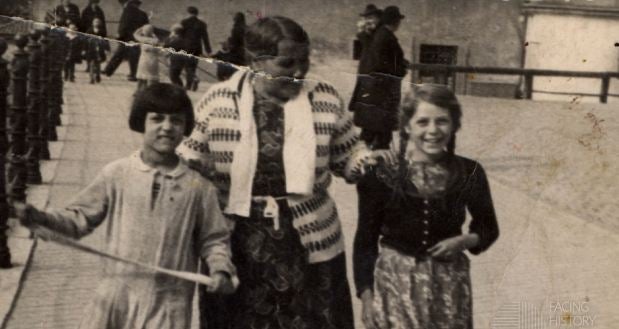
MEMOROBIA: Memorialisation of Roma enslavement in territories of contemporary Romania
The research project MEMOROBIA will generate knowledge on the historical roots and genealogy of anti-Roma racism, and the role the majority society has played in oppressing Roma. This is important because poverty among, and discrimination against, Roma is often treated as a contemporary phenomenon that can be solved through policies targeting the minority. Recent research has pointed out that whereas the Black, LGBTQ and feminist movements have succeeded in directing the focus towards structural issues and a need for change in the majority society, Roma policies are still overwhelmingly calling for the Roma minority to change rather than the surrounding society (Stenroos, 2020, p. 80).
About the Research Project
MEMOROBIA will take Romania as its primary case study. Romania is crucial to discussions of Roma inclusion as it is the country with the largest Roma population in Southern and Eastern Europe. It is further the only country where Roma people were enslaved for 500 years, and therefore has a particular legacy of exploitation and exclusion. Nevertheless, the history of Roma enslavement in Romania is also part of a shared European and American history: Roma fled from enslavement in Romania to other countries, including Norway. Many of the Vlach Romani minorities across continents are descendants of slaves. The slavery and its consequences is therefore not only part of Romanian history, but part of a shared Roma history, including in the history of the Roma national minority in Norway.
To understand some of the consequences of Roma slavery, this project will examine wealth gap, patterns of hiding Roma identity, Roma self-esteem, and anti-Roma attitudes and prejudice entrenched in the 500 years of enslavement. By analyzing carefully collected empirical materials and using theories from slavery related contexts, the project will shed light on the relationship between the historical Roma enslavement, on one hand, and present-day anti-Roma racism, racialized poverty, social exclusion and Roma migrations, on the other.
By crossing the borders of traditional disciplines, the MEMOROBIA project will apply theories and methods from a range of disciplines, such as education, history, economics, social anthropology, political science and psychology. The goal is a more holistic understanding of Roma slavery and its memorialization than would be possible through the analysis of data within the framework of a single discipline.
Project Objectives
- Establish empirical and theoretical knowledge of present-day consequences of Roma slavery in contemporary Romania and its memorialization, including how it could be ethically addressed in education in Europe. This primary objective will be achieved through addressing three secondary objectives:
- Understanding the consequences of slavery in contemporary Romania, such as the material inequality that might have resulted from preventing descendants of slaves from accumulating intergenerational wealth.
- Establishing the legacy of Roma slavery in today’s Europe, with a particular focus on memory politics, expanding and adjusting already existing theories on memorialization in general, and historical justice and reparations in particular.
- Addressing the lack of slavery education in a European context. Establishing knowledge about how slavery can best be taught offers a new and much-needed contribution to the educational sector by addressing the need to develop a theoretical framework that can inform policy makers as well as curricula and textbook authors about how Roma history and the current situation can be addressed and taught in an ethical, respectful and non-harmful way.
Research questions:
The research project will answer the following research questions:
- What has been the impact of slavery on Romani lives and non-Roma–Roma relations?
- How has slavery been memorialised and addressed in Romania?
- How can the slavery develop our understanding of memorialisation and historical justice?
- How can slavery best be addressed in education in Europe?
Research Team:
 Dr. Solvor Mjøberg Lauritzen will serve as Principal Investigator. Her empirical research has focused on educational change through implementation of educational programmes and curricula (Lauritzen, 2013, 2016a, 2016b), alternative education (Lauritzen, 2019) and the need for integration of difficult historical narratives into education (Lauritzen & Nodeland, 2017). Through empirical research, she has pointed to shortcomings in the current education system in Romania and the alternatives offered to Romani children (Lauritzen, 2019). Moreover, she has carried out two systematic reviews on Roma and education (Lauritzen, 2018; Lauritzen & Nodeland, 2018).
Dr. Solvor Mjøberg Lauritzen will serve as Principal Investigator. Her empirical research has focused on educational change through implementation of educational programmes and curricula (Lauritzen, 2013, 2016a, 2016b), alternative education (Lauritzen, 2019) and the need for integration of difficult historical narratives into education (Lauritzen & Nodeland, 2017). Through empirical research, she has pointed to shortcomings in the current education system in Romania and the alternatives offered to Romani children (Lauritzen, 2019). Moreover, she has carried out two systematic reviews on Roma and education (Lauritzen, 2018; Lauritzen & Nodeland, 2018).
 Dr. Margareta (Magda) Matache, PhD, is a Lecturer on Social and Behavioral Sciences at the Department of Social and Behavioral Sciences, Harvard T.H. Chan School of Public Health, and the Director of the Roma Program at the FXB Center for Health and Human Rights, Harvard University.
Dr. Margareta (Magda) Matache, PhD, is a Lecturer on Social and Behavioral Sciences at the Department of Social and Behavioral Sciences, Harvard T.H. Chan School of Public Health, and the Director of the Roma Program at the FXB Center for Health and Human Rights, Harvard University.
Her research focuses on systems of oppression, with a focus on anti-Roma racism. With more than 20 years of experience in activism and research, Dr. Matache has dedicated her work to advancing justice and Roma rights. She has been a pioneer in demanding recognition of slavery in Romania, and has in recent years introduced the topic of reparations into the academic debate on Roma slavery, and she is co-editor of a book on reparations and state responsibilities.
 Dr. Jan Selling is a Swedish researcher who has researched collective memory in many contexts, including the Holocaust and Roma history. Through his academic work and public engagement, he has been instrumental in establishing the topic of anti-Roma racism in Scandinavian research and bringing it to Swedish public awareness. He published a book in 2020 that, for the first time, provides a comprehensive analysis of Roma emancipation, including emancipation from slavery.
Dr. Jan Selling is a Swedish researcher who has researched collective memory in many contexts, including the Holocaust and Roma history. Through his academic work and public engagement, he has been instrumental in establishing the topic of anti-Roma racism in Scandinavian research and bringing it to Swedish public awareness. He published a book in 2020 that, for the first time, provides a comprehensive analysis of Roma emancipation, including emancipation from slavery.
Visit our project partner’s website here.
Truth and Transformation Conference 2022
How can truth and transformation be achieved through historical accountability? The 2022 Truth and Transformation Conference, hosted by the Institutional Antiracism and Accountability (IARA) Project on October 20-21, 2022, examined how reparative practices, truth commissions, and institutional reckoning with structural oppression provide ways forward for equitable change. Convened by IARA Faculty Director Khalil Gibran Muhammad.
Dr. Margareta (Magda) Matache, FXB Roma Program Director, delivered powerful closing remarks after the last panel discussion which was titled “Paying it Forward”:
Time for Reparations: A Global Perspective
In collaboration with Jacqueline Bhabha, FXB Director of Research and Professor of the Practice of Health and Human Rights, and Caroline M. Elkins, Professor of History and of African and African American Studies, Dr. Margareta (Magda) Matache worked on providing an interdisciplinary perspective on this topic, originally inspired by the excellent presentations and discussion at “Responses to State Sponsored Collective Violence,” the fourth annual Roma conference at Harvard, organized by the FXB Center.
In this sweeping international perspective on reparations, Time for Reparations makes the case that past state injustice—be it slavery or colonization, forced sterilization or widespread atrocities—has enduring consequences that generate ongoing harm, which needs to be addressed as a matter of justice and equity. The University of Pennsylvania Press published the volume in 2021.
Read praise for this work below:
“The past lives in the present of all of us who are the survivors and descendants of extreme forms of inhumanity, and how we deal with it varies in profound ways, from those who would rather forget to those who demand both moral and material remediation as well as full acknowledgement and restorative apology for past injustices. This volume thoroughly and expertly explores all aspects of this tragic problem, from the slow and swift genocides of slavery and Nazi extermination to the sustained, multifaceted crimes of colonialism, as well as the legal, political and other lessons learned in the struggle for remedial justice. The richly informed and powerfully argued chapters fully persuade the reader of the urgency of a movement that has lately gained renewed vigor as well as moral, legal and intellectual clarity and direction. Above all, the work makes clear that the reparation movement’s goals are not only those of acknowledging and rectifying past wrongs and of preventing future ones but, as the police killings of black Americans make clear, of alleviating the inherited evils of the past still active in our times.”—Orlando Patterson, author of Slavery and Social Death: A Comparative Study
“Injustices carry consequences, and unaddressed injustices impose consequences that grow and compound, burdening individuals and societies for generations. Time for Reparations brings history, rigor, and imagination to prospects for reparative approaches to searing human rights wounds. This is the time, and here are viral roadmaps for constructive repair.”—Martha Minow, author of When Should Law Forgive?
Anti-Roma Violence in Hungary // Post-War Kosovo and the Roma
Economic, social, and political developments have fueled a reemergence of violence against the Roma community, including state-sanctioned policies and practices, attacks, hate speech, and hate crimes. In this component of promoting reflection on past and present state-sponsored violence against Roma, Harvard FXB informs and engages with the broader academic community to support the efforts of Roma activists, communities, and institutions to combat extremism and hate-motivated violence. In our research we have been an early adopter of tracking social media as a measure of hate speech and have identified the Roma community as an ongoing case study in early warning for atrocity prevention, especially since they have experienced recent genocide. We also explore the types of responses to past and present collective injustice employed by different governments for Roma.
Learn more about Roma history here in a video of FXB Roma Program Director, Dr. Margareta (Magda) Matache, produced by Facing History and Ourselves.
Watch the video: https://www.facinghistory.org/videos/we-call-ourselves-roma
Accelerating Patterns of Anti-Roma Violence in Hungary, 2014
This report was intended to alert the United Nations and the international community to the persistent patterns of violent attacks and actions against Roma people in Hungary.
In the report, Harvard FXB made the case that Hungary’s mounting incidence of hate crimes, racist propaganda, discrimination, and exclusionary ideologies indicated a need for measures to ensure the physical and psychological safety of the Roma and other minority groups. It suggested that warning signs existed that should have sounded alarms in the international community.
The findings are based on desk research and field assessments, using documentation by international and local human rights organizations working in Hungary, coverage in the mass media in English and Hungarian, and reports and materials in the public domain published by intergovernmental and national institutions. Researchers gathered factual data to identify and report on instances and patterns of violence, killings, military training, and propaganda against the Roma.
Read The Accelerating Patterns of Anti-Roma Violence in Hungary report: https://fxb.harvard.edu/wp-content/uploads/sites/2464/2014/02/FXB-Hungary-Report_Released-February-3-2014.pdf
Read coverage of the study in Foreign Policy in Focus, The Conversation, NPR’s Code Switch, The Huffington Post, and the Montreal Gazette.
Post-War Kosovo and Its Policies Towards the Roma, Ashkali and Egyptian Communities, 2014
In June 2013, a research team from Harvard FXB conducted a fact-finding mission in Kosovo to investigate the human rights situation of the Roma, Ashkali, and Egyptian minority populations with a focus on the status of children and adolescents.
The team visited five communities: the Plementina/Obelic district, Gracanica in the Pristina area, the Roma Mahala in Mitrovica, the Leposavic camp in Northern Kosovo and Prizen in South Kosovo, close to the Albanian border. Issues facing these communities included forced repatriation, access to education, and discrimination. The research team also engaged with leaders of international organizations, diplomats, political officials, civil society, scholars and independent experts.
Following the field work, Harvard FXB published a full report, including recommendations for national and international governments and organizations.
Read the article “Towards EU Negotiations: A Moment of Opportunity for the Roma, Ashkali and Egyptian Communities in Kosovo?” (European Review)
Read the blog The Struggles of Roma in Kosovo
https://harvardfxbcenter.wordpress.com/2013/06/
